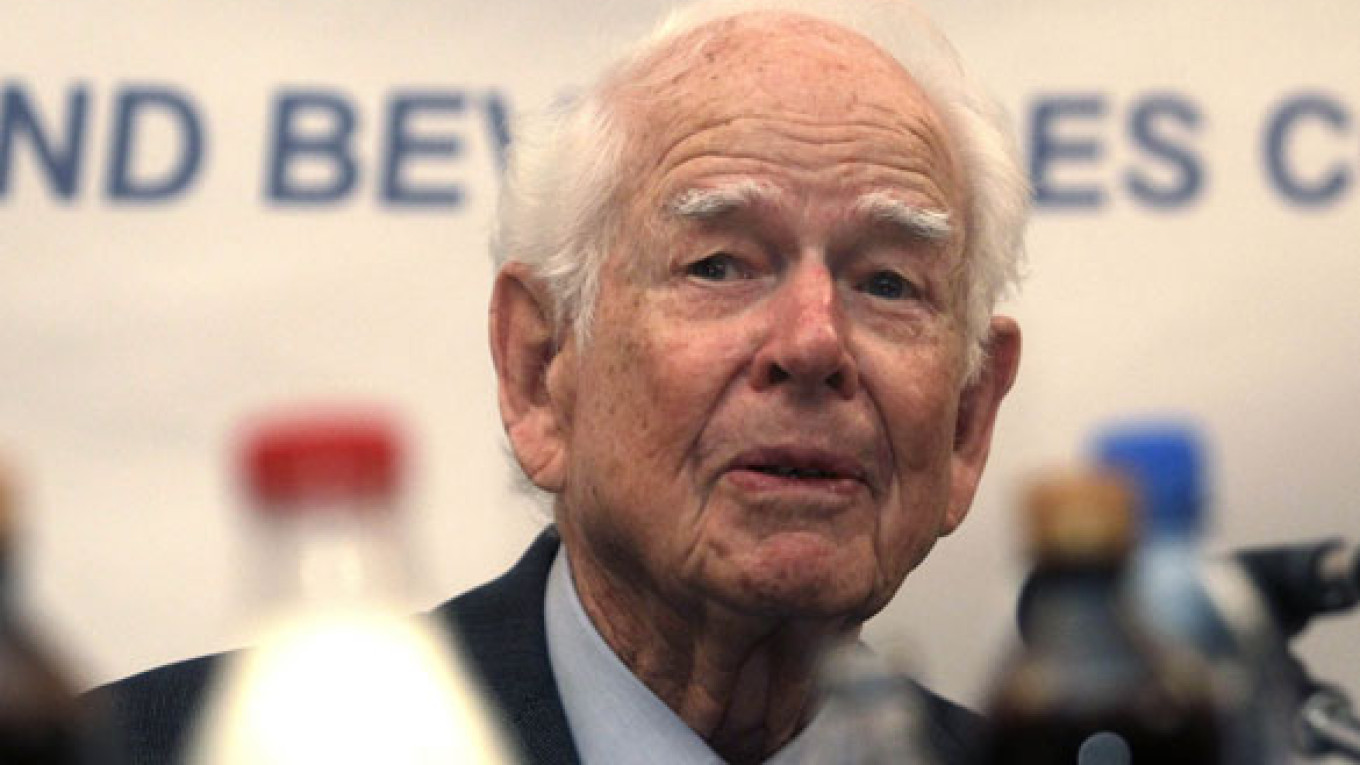PepsiCo will acquire a controlling stake in juice and dairy giant Wimm-Bill-Dann to become the biggest food and beverage company in Russia, the companies announced Thursday.
As a result of the deal Pepsi will have 49 manufacturing facilities and employ some 31,000 people in Russia, Ukraine and Central Asia, making it “the crown jewel of PepsiCo Europe,” Zein Abdulla, chief executive of PepsiCo Europe, told reporters.
PepsiCo will pay $3.8 billion for 66 percent of the No. 1 beverage company, and will get an option to buy the rest of the company later.
The deal, which is subject to approval by the Russian government, will make PepsiCo the biggest food and beverage company in the country, and will make Russia Pepsi’s biggest market outside the United States.
The price paid by PepsiCo implies a total company value of some $5.4 billion. At $33 per ADR share ($132 per ordinary Russian share), Pepsi paid a 32 percent premium on the current value of Wimm-Bill-Dann shares.
Wimm-Bill-Dann stock surged on the news, causing the MICEX exchange to raise its upper limit on price gains for Wimm-Bill-Dann shares. By the close of trading in Moscow, the stock was up 58 percent to 3,634.32 rubles, with a volume more than 10 times the previous day.
The company had previously been valued at $2.6 billion when the French dairy giant Danone divested itself of an 18.4 percent share for $470 million in October.
Wimm-Bill-Dann, whose juice brands include J7 and Lyubimy Sad, was the last major independent player on the market after Pepsi’s acquisition of Lebedyansky in 2008, and Coca-Cola’s acquisitions of Nidan Soki earlier this year and Aquavision in 2007. The Russian juice market is now effectively divided between the two American rivals, said Alexander Yudin, vice president at investment company Grandis Capital.
Analysts estimate the company’s juice business at 28 percent of its overall turnover. Yudin said the move would not make sense if it was just for the sake of consolidating the juice market. It looks more like a strategic move to get into to the dairy market.
Wimm-Bill-Dann owns four out of the five most popular dairy brands in Russia, including Domik v Derevne, Vesyoly Molochnik, Chudo and M.
PepsiCo says the move is part of fulfilling its declared goal of growing its nutrition businesses to $30 billion by 2020, from about $10 billion today. Acquisition of Wimm-Bill-Dann takes that figure to $13 billion.
“Health and wellness trends are accelerating around the globe, and that’s one thing that’s driving the growth of dairy,” said Abdulla, whose company has already moved into the dairy market in the Middle East via a joint venture with Saudi-based Almarai.
“Consumption of dairy products is only 25 kilograms per capita per year in Russia — that’s much less than some European countries,” Yudin said. PepsiCo says it expects the Russian dairy market to grow “at a low double-digit rate” for at least the next three years.
But Pepsi is not alone in its interest in Russia’s dairy market. Danone sold its stake in Wimm-Bill-Dann in order to comply with antitrust laws so it could acquire Unimilk, another Russian dairy company.
“Competition is heating up in the dairy market, and competition to achieve a health focused positioning, both in emerging and developed markets, is becoming increasingly intense,” said Ildiko Szalai, packaged foods analyst at Euromonitor International.
Pepsi co-founder Donald Kendal, now 90, said he conducted a taste test for Soviet Premier Nikita Khruschev in 1959, allowing the general secretary to try a sample of Pepsi made in America, and one made in Moscow. Khruschev preferred the locally produced variety, but Pepsi still had to wait 15 years before it became the first Western soft drink to be mass-produced and sold in the Soviet Union.
A Message from The Moscow Times:
Dear readers,
We are facing unprecedented challenges. Russia's Prosecutor General's Office has designated The Moscow Times as an "undesirable" organization, criminalizing our work and putting our staff at risk of prosecution. This follows our earlier unjust labeling as a "foreign agent."
These actions are direct attempts to silence independent journalism in Russia. The authorities claim our work "discredits the decisions of the Russian leadership." We see things differently: we strive to provide accurate, unbiased reporting on Russia.
We, the journalists of The Moscow Times, refuse to be silenced. But to continue our work, we need your help.
Your support, no matter how small, makes a world of difference. If you can, please support us monthly starting from just $2. It's quick to set up, and every contribution makes a significant impact.
By supporting The Moscow Times, you're defending open, independent journalism in the face of repression. Thank you for standing with us.
Remind me later.


